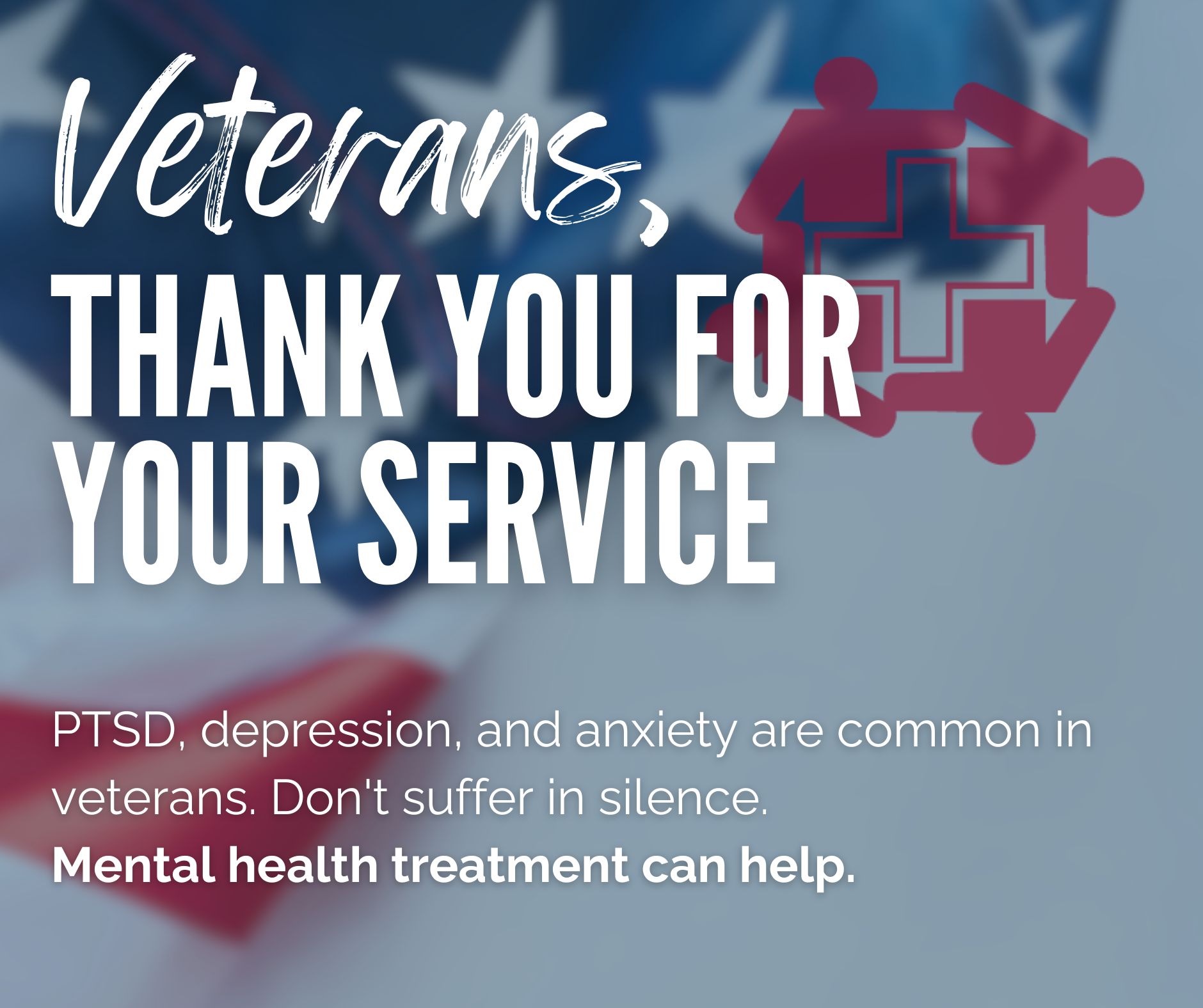Healing the Invisible Wounds: The Power of Mental Health Treatment for Veterans

In recognition of Veterans Day, Stewart Memorial Community Hospital (SMCH) and McCrary Rost Clinics are emphasizing the critical role of mental health treatment in addressing the unique challenges faced by veterans, particularly those struggling with Post-Traumatic Stress Disorder (PTSD).
Many veterans who have served our country bravely often carry the invisible wounds of war, including PTSD, depression, and anxiety. These conditions can significantly impact their quality of life, relationships, and overall well-being. Whether a veteran's service was one or 50 years ago, they don't have to continue to suffer. Mental health treatment offers a powerful tool for healing and recovery. Stewart Memorial Community Hospital and McCrary Rost Clinics are dedicated to providing accessible and effective mental health services to veterans.
“We are very happy to provide both medication and therapy services because those definitely work hand in hand and are essential to improving mental health,” shared SMCH Psychiatric Nurse Practitioner, Carrie Goodwin, DNP, PMHNP-BC. “So, if you come in to see me and I think that you have some issues that need to be worked through in therapy, I will gladly refer you to one of our therapists and vice versa. If a therapist is seeing a medication need that isn't being addressed in therapy, they will refer you to one of our medication providers. We work very well in coordinating our care as a team.”
SMCH mental health specialists commonly work with trauma patients, helping them find appropriate and effective coping skills to adapt.
How Mental Health Therapy Can Help Veterans:
- Processing Trauma: Therapy provides a safe and supportive space for veterans to process traumatic experiences and develop healthy coping mechanisms.
- Managing Symptoms: Therapists can teach veterans strategies to manage symptoms of PTSD, such as hypervigilance, flashbacks, and nightmares.
- Building Resilience: Therapy helps veterans build resilience, enabling them to cope with stress and adversity.
- Improving Relationships: Therapists can help veterans improve their relationships with family, friends, and loved ones.
- Reducing Suicidal Risk: Early intervention and ongoing therapy can significantly reduce the risk of suicide among veterans.
If you are a veteran struggling with mental health challenges, please know that you are not alone. Seeking help is a sign of strength, not weakness.
“We have a crisis line number and a mental health area action team that people can call if they need immediate help,” said Goodwin. “Call the ER, call your primary care provider, call the clinic, call someone. There is no need to struggle in silence. We are here to help you. We are trained to help you. And we want to help you.”
Key Resources for Veterans in Need:
- Suicide Hotline: Call or text 988
- Veterans Crisis Line: 1-800-273-8255 (Press 1)
- National Alliance on Mental Illness (NAMI) www.nami.org
- Calhoun County Commissions of Veteran Affairs 712-297-8632
- Rolling Hills Community Services Region 712-749-2556
- Lake City McCrary Rost Clinic 712-464-7907
- Gowrie McCrary Rost Clinic 712-464-8891
- Rockwell City McCrary Rost Clinic 712-297-8989
- Lake View McCrary Rost Clinic 712-665-8555